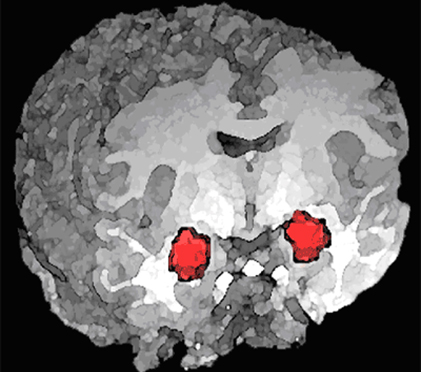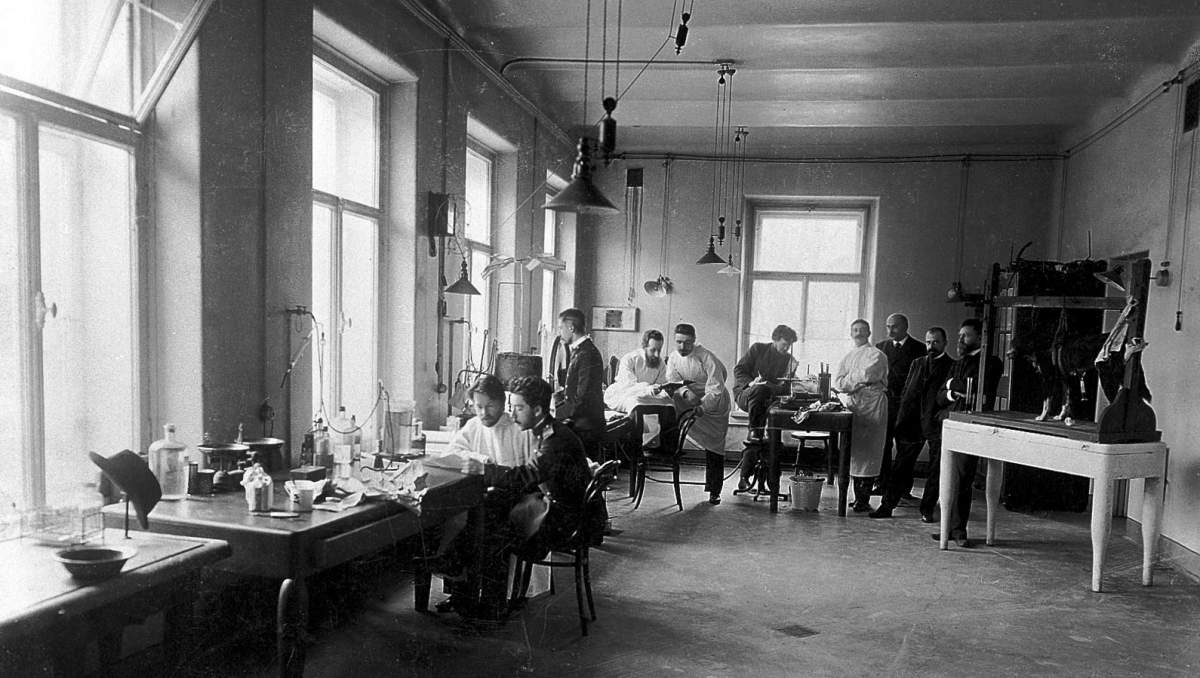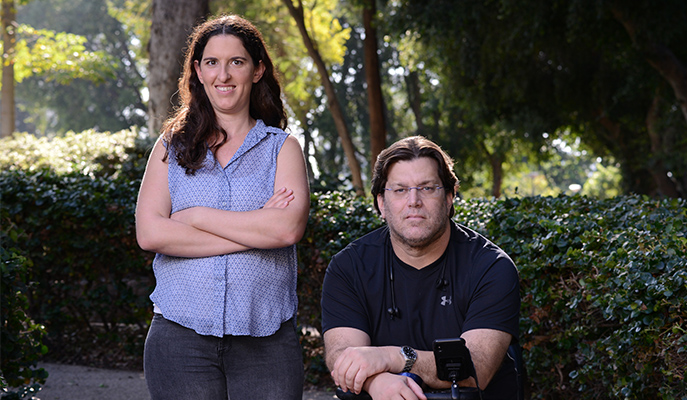Are you a journalist? Please sign up here for our press releases
Subscribe to our monthly newsletter:

A diligent student might stay in the classroom during recess to go over the recently learned material instead of playing in the schoolyard. Research at the Weizmann Institute of Science suggests that the neurons in a part of the brain called the amygdala are so diligent, they repeat the learned material even during recess. The findings, recently reported in Nature Neuroscience, not only shed new light on this process in the brain but may also help researchers understand what goes wrong in disorders like PTSD, in which emotion-based learning goes awry.
The amygdala – a structure deep in the brain, named for its shape (“almond” in Greek) – is known to be associated with emotions, and it has been shown to be involved in associative learning, when the brain connects such perceptual stimuli as a tone or visual cue with an aversive or pleasant experience. The Russian scientist Pavlov famously demonstrated this kind of “Pavlovian learning,” or “classical conditioning.” He conditioned dogs to salivate at the sound of a bell, just by ringing that bell every time they were fed. Pavlov received a Nobel Prize for this work in 1904, but over a century later, it is still not clear what happens in the brain when such learned associations are engrained.

Prof. Rony Paz and research student Tamar Reitich-Stolero of the Institute’s Neurobiology Department began their study by creating an association based on the basic principles that Pavlov had laid down: The researchers presented either a pleasant or a noxious smell, each time paired with a particular neutral tone. But the Weizmann researchers had something Pavlov could only have dreamed of – the means to record the activity of neurons in the brain while this learning was taking place. They focused in particular on neurons in the amygdala, so as to better understand its contribution to the process.
An analysis of the data revealed triplets of amygdala nerve cells firing one after the other in unique, repeating patterns; and the patterns associated with the pleasant smells were distinguishable from those tied to the noxious ones. These patterns kept on repeating for quite a while – even in the breaks between the learning sessions. The researchers concluded that this repetition was a sort of rehearsal that helped the brain go over the material until the new memories were fully embedded in the brain. As the learning advanced and the association between the sounds and the odors became more internalized, the repetitions lessened, as if additional rehearsal were unnecessary after the lessons became well grounded in the brain.

Our emotions play a role in learning and memory for a reason. To survive in an ever-changing environment, we need emotion-based conditioning to let us know, for example, when a noise is associated with danger or a smell with food that can make us sick. But in people suffering from PTSD, says Paz, the learning process can go awry: Nonthreatening stimuli get “branded” as highly dangerous just because they were sensed around the time of a traumatic event. The fear that accompanies PTSD can be paralyzing, and those affected may find that everyday sounds or sights can become triggers that bring on anxiety and panic.
If such rehearsal indeed contributes to emotional learning, we might be able to interfere with this process and decrease the extent of the flawed learning in PTSD and the subsequent stress response. Behavioral studies had previously suggested that such interference might be possible. The researchers think that preventing the patterns from repeating over and over might be achieved in the future, either through drugs or interventions such as brain stimulation, and this could be applied to a particular set of rehearsals, to interfere with one traumatic learning experience.
Prof. Rony Paz is Head of the M. Judith Ruth Center for Trauma and Anxiety Research; the Nella and Leon Benoziyo Center for Neurosciences; the Carl and Micaela Einhorn-Dominic Brain Research Institute; the Murray H. & Meyer Grodetsky Center for Research of Higher Brain Functions; and the Gladys Monroy and Larry Marks Center for Brain Disorders. His research is also supported by the Irving B. Harris Fund for New Directions in Brain Research; the Andrea C. and Lawrence I. Marcus Fund for Emotional/Psychological Disorders; the Bernard and Norton Wolf Family Foundation; the Harold L. and Faye B. Liss Foundation; the Oster Family Foundation; the Leff Family; Mr. and Mrs. Gary Clayman; Rosanne Cohen; Philip Garoon; and the estate of Toby Bieber.